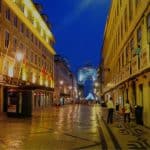On the trail of liveability rankings released recently by both The Economist Intelligence Unit and Mercer, and just a couple of weeks until Monocle’s Global Quality of Life Survey is out, I thought it would be interesting to question why we care so much about liveability?
But first here are some thoughts from a friend on why we don’t want to live in a ‘liveable’ city:
This hurts Vancouver so much…
1) Employers can say, it’s so livable ! so we can afford to pay less – people SO want to live here.
2) Real estate market keeps going up — people want to live here
3) Vancouverites who haven’t been elsewhere keep the same attitude that it is so perfect and there’s no room for improvement :
– Release city restrictions : Velib bikes ? Sidewalk cafes ?
– A little more culture : +art, +theatre.It is great that you can ski and go to the (cold) beach on the same day, but that does not mean it would be bad if you could ski and go to see ‘Wicked’ or a Monet on the same day…..
Is it possible that a city can hypnotize its inhabitants into such a state of apathy that liveability is an attribute to be desired but never to be acquired? Just as Borges suggests that there is nothing remarkable about being immortal except to know oneself immortal; I wonder if our (my?) obsession with liveability would terribly affect our lifestyles should we realize we already ARE living in the absolute best place we can possibly find.
Perhaps the most important lesson in travel can be applied to this quest: what matters is not the destination, but the journey. To aspire to find better ways to live, learn from other people making a good and balanced living, connect with other people pursuing the same ideals; these are the reasons to continue our quest for liveability and never settle and assume that we’ve found it. The most interesting bit of this quest is every single new place that will teach us something new that we hadn’t learnt in our previous stops.
I should add that the quote from my friend is based on his own experience living abroad, finding the city of lights after many years of what anyone would’ve assumed was already a great lifestyle. It demonstrates the spirit of a true global citizen, never assuming that things are as well as they could be. Not for himself, not for his family and not for the people that live around him. There will always be a better way, and that’s the spirit of the invitation in give up your urban “devil”:
the key may be in experimentation: what if you could try alternate lifestyles for a short while? Maybe farming is not going to cut it, but helping a community in need develop advanced social programs tapping into your urban skills may be your call. If you could try not one but a few life-changing experiences, chances are not only you’ll change your life, but you’ll end up enhancing the life of many people around you.
P.S. If you haven’t read The Immortal, go buy The Aleph by Borges.







